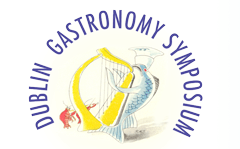Start Date
28-5-2020 2:00 PM
End Date
28-5-2020 2:15 PM
Description
ur foods today are becoming more and more industrialised, manufactured, globalised; requiring rules and regulations to ensure the safety of those who eat. The rules and regulations are designed to manage the processes of big businesses and corporations that make our food. But these rules and regulations, once in place, come to cover all manner of foods that are local, artisanal and special. Those special, artisanal foods include those with an array of resident microbes creating, arguably, better more complex flavour, foods that might confer good health. But resident microbes are the target of the rules and regulations that ensure safety. In Australia, raw cow’s milk is a contested substance, a food too risky to allow its sale to consumers. Yet there are those who value raw milk for many reasons: nostalgia, heritage, support and care of community, wellness and flavour. The microbes that are responsible for the banning of raw milk are valued by those that drink it, contesting the notions of safe food and the foods that contribute to good health. Raw milk is just one example of an old food that has become caught up in the rules, regulations and standards that manage today’s foods. My research challenges the application of rules and regulations to foods with values that predate our desire for a totally safe food supply; foods that are artisanal, bound up with heritage, made in home kitchens with love and memories. I argue that these small-scale artisan foods should be preserved: they deserve rules that manage the scale of small, local, delicious.
DOI
https://doi.org/10.21427/tq6d-kk57
Included in
Safe, Risk-Free, Standardised Food for All, Is That What We Will Eat Tomorrow?
ur foods today are becoming more and more industrialised, manufactured, globalised; requiring rules and regulations to ensure the safety of those who eat. The rules and regulations are designed to manage the processes of big businesses and corporations that make our food. But these rules and regulations, once in place, come to cover all manner of foods that are local, artisanal and special. Those special, artisanal foods include those with an array of resident microbes creating, arguably, better more complex flavour, foods that might confer good health. But resident microbes are the target of the rules and regulations that ensure safety. In Australia, raw cow’s milk is a contested substance, a food too risky to allow its sale to consumers. Yet there are those who value raw milk for many reasons: nostalgia, heritage, support and care of community, wellness and flavour. The microbes that are responsible for the banning of raw milk are valued by those that drink it, contesting the notions of safe food and the foods that contribute to good health. Raw milk is just one example of an old food that has become caught up in the rules, regulations and standards that manage today’s foods. My research challenges the application of rules and regulations to foods with values that predate our desire for a totally safe food supply; foods that are artisanal, bound up with heritage, made in home kitchens with love and memories. I argue that these small-scale artisan foods should be preserved: they deserve rules that manage the scale of small, local, delicious.
